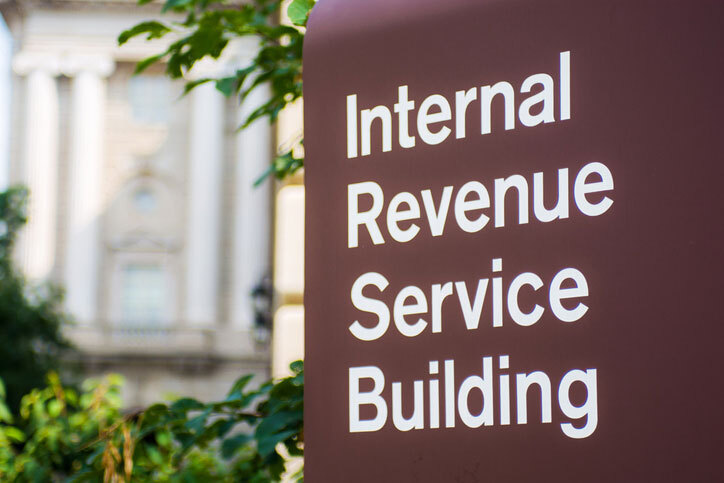Reaching a Resolution with the IRS on your Own
Perhaps one of the most intimidating government entities that taxpayers interact with is the IRS – and for a good reason.
The IRS wields tremendous power; they can garnish your wages, place levies on your assets, and even close down your business. It stands to reason that dialoguing with the IRS can be a frightening and stressful endeavor.
If you’re in a situation where you will inevitably have to resolution a tax issue with the IRS; you may be wondering if you should take them on by yourself or enlist professional assistance.
Facing the IRS Alone
No law or rule prohibits you from deliberating with the IRS on your own. However, taking on the IRS is no minor task; consider these factors first:
Instances Where You Should Go Alone
Two important considerations are the monetary cost, and how much time and effort you are willing to dedicate to your case.
For example, if you have a relatively low tax bill – $5,000 or less – you might be better off getting into an installment agreement with the IRS. You will save yourself money by forgoing a tax expert.
Furthermore, should you get audited by the IRS, but have all your documents, files, and records in order, and can verify everything on your returns, you won’t need a professional.
Possible Downsides of Going Alone
While you will save yourself money, reaching a resolution without a representative has its risks. For example, you risk saying something factually inaccurate, getting overly emotional, or getting talked into a less than ideal resolution.
Facing the IRS With A Tax Expert
Although it does cost a fee to work with a tax professional, they offer a wide range of benefits.
The Benefits of Choosing a Professional
Your time commitment will drastically decrease when an IRS resolution is not your responsibility. A significant portion of the workload falls on the tax expert. Typically, all you need to do is provide them with the necessary documentation in a timely manner.
A tax expert will also fare favorably with the IRS. The IRS prefers to work with tax professionals because it makes their job easier as they both are at comparable levels in tax law knowledge.
Tax experts bring experience, insight, and resources to your case. A practiced eye can examine your situation and come up with an ideal strategy. Plus, an expert can skillfully dialogue and communicate with the IRS.
Choose TaxRise To Represent You
You can gain all of our knowledge, skill, and resources by contacting TaxRise today or by taking our brief survey.
Any new or systemic Liens and/or Levies will also be suspended for the time being.
For taxpayers who are considered “seriously delinquent”, the IRS will suspend any new certifications for the remaining period. Any taxpayer who falls into this category in reminded and encouraged to enter into an Installment Agreement or apply for an Offer In Compromise.
The IRS will not forward any new delinquent accounts to private collection agencies at this time.
Taxpayers have until July 15, 2020 to verify to the IRS they are qualify for the Earned Income Tax Credit or to confirm their income. If the taxpayer is unable to verify their credentials or provide appropriate documents for this credit, they are encouraged to notify the IRS before the deadline. No cases will be denied this credit for failure to provide requested information until July 15.
Case workers will continue business as usual. However, most case work will be conducted remotely (video/over the phone conferences). Any requests for documentation sent by the Office of Appeals should be responded to in a timely manner to ensure a smooth process.
The IRS will continue to take the appropriate measures to stay compliant and protect the applicable statutes of limitations. In situations where certain statutes may be compromised, taxpayers are encouraged to extend such statutes. Otherwise, Notices of Deficiency will be issued by the IRS and similar actions will be pursued to protect the interests of the government in preserving such statutes. Where a statutory period is not set to expire during 2020, the IRS is unlikely to pursue the foregoing actions until at least July 15, 2020.
Practitioners are reminded that PPS wait times may be significantly longer, depending on staffing levels and allocations going forward. The IRS will continue to monitor this as situations develop.
“The IRS will continue to review and, where appropriate, modify or expand the People First Initiative as we continue reviewing our programs and receive feedback from others,” Rettig said. “We are committed to helping people get through this period, and our employees will remain focused on these and other helpful efforts in the days and weeks ahead. I ask for your personal support, your understanding – and your patience – as we navigate our way forward together. Stay safe and take care of your families, friends and others.”
Learn how easy it is to qualify for tax savings.




